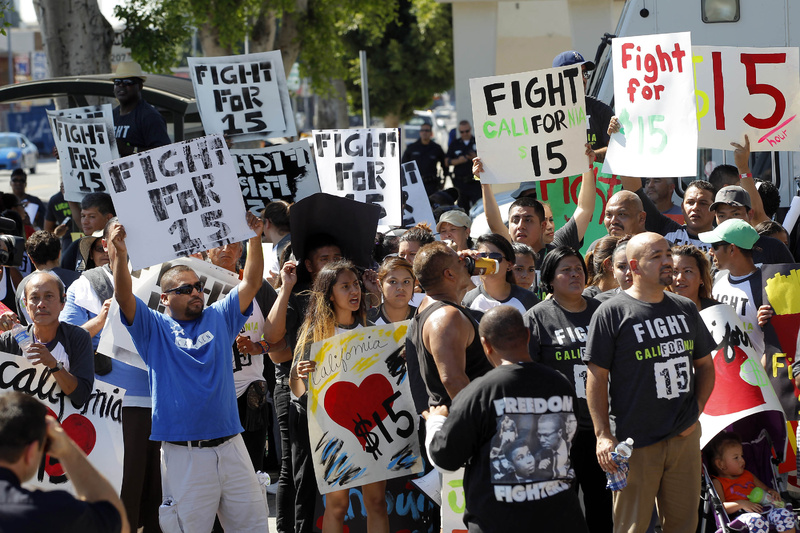If the war on poverty has ended, as the Trump administration recently declared, there’s a huge swath of workers who haven’t heard the news.
They live in fear that a layoff or medical problem will push them into a financial crisis. They struggle with slow wage growth that barely keeps pace with the cost of living. Inflation hit 2.9 percent for the 12 months ending in June as costs for gasoline, housing, and food kept growing. At the same time, wages rose by less than 3 percent, hardly making up for increased costs for those items.
The federal government has made it clear it won’t help, so state governments need to step up. Some already have. Attorneys general in 11 states announced this month that after an investigation, seven fast-food chains agreed to drop their “no-poaching” practices — arrangements where they agree not to hire workers from other franchises of the same company. That practice can, for example, keep employees from one McDonald’s restaurant from getting a job at another one to raise their pay, get a better schedule, or find employment closer to home. No-poaching effectively knocks workers off a career ladder. The seven companies are Arby’s, McDonald’s, Jimmy John’s, Buffalo Wild Wings, Carl’s Jr., Auntie Anne’s, and Cinnabon.
Those attorneys general should keep up the fight and go after the rest of the fast-food and retail chains with no-poaching policies so that workers can leverage their skills for better pay. Consumers can show their support for the seven fast-food chains that have dropped their no-poaching agreements, as well as companies which have voluntarily raised employee wages, by patronizing those businesses.
But there’s even more to do for workers, starting with raising the minimum wage. States can also change overtime rules to help salaried workers, most of whom aren’t eligible for overtime pay.
Toward the end of his administration, President Barack Obama changed overtime rules to let salaried workers who earn less than $47,476 a year collect overtime pay for hours worked over 40 a week. But President Donald Trump let it die when he decided not to challenge a 2016 Texas court ruling that struck it down. That means only salaried workers making less than $23,660 a year can collect overtime. These workers are often misclassified as supervisors and work well over 40 hours a week without compensation.
California raised its overtime threshold to $47,760, and New York raised it to between $40,560 and $50,700 depending on where a worker lives.
Voters can help by demanding that candidates for federal and state offices help raise wages. The government might like us to believe that the war on poverty is over, but low- and moderate-income Americans are sure to argue the opposite. Right now, the states are the best hope for helping.
Editorial by The Philadelphia Inquirer
Visit The Philadelphia Inquirer at www.philly.com
Distributed by Tribune Content Agency, LLC.
Copy the Story LinkSend questions/comments to the editors.



Success. Please wait for the page to reload. If the page does not reload within 5 seconds, please refresh the page.
Enter your email and password to access comments.
Hi, to comment on stories you must . This profile is in addition to your subscription and website login.
Already have a commenting profile? .
Invalid username/password.
Please check your email to confirm and complete your registration.
Only subscribers are eligible to post comments. Please subscribe or login first for digital access. Here’s why.
Use the form below to reset your password. When you've submitted your account email, we will send an email with a reset code.